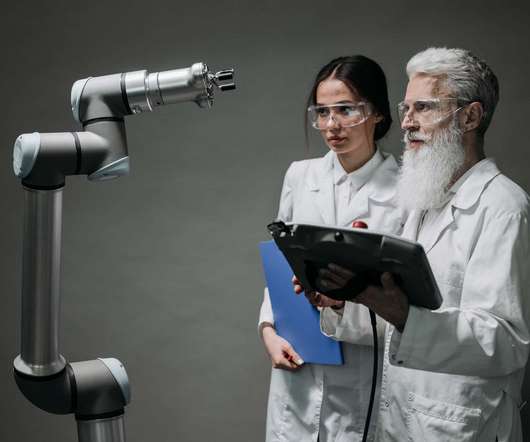The Biggest Manufacturing Industry Trends in 2022
Unleashed
FEBRUARY 21, 2022
As 2022 kicks in, the manufacturing sector is being shaped by technological change and the Covid-19 pandemic. Digital, connected and smart systems are on the rise, while at the same time manufacturers face challenges such as the ‘Great Resignation’ and clogged-up supply chains – as well as increasing demand for sustainable products.
















Let's personalize your content